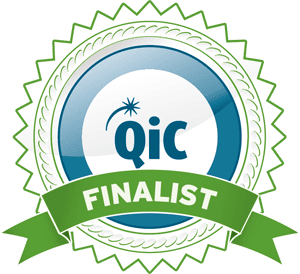Summary
This partnership programme comprises an outreach viral hepatitis clinic embedded with a drug and alcohol treatment centre. Thus it integrates a number of approaches that have shown a substantial increase in testing and treatment of those with a history of injection drug use - a typically hard-to-reach population.
An evidence-based approach combines a community-based treatment service with peer education and workforce development, and in the first year 24 people with hepatitis C have been treated. The clinic was set up fortnightly with a specialist nurse travelling from Bristol Royal Infirmary (BRI) to see patients referred by Addaction and local GPs. Addaction contacted and encouraged patients to attend prior to the clinic. Patients identified as needing support were given assistance with travel to the BRI for radiological investigations.
Challenge
Concerns were raised that patients from Weston, a seaside town 30 miles from Bristol, were not able to easily access treatment for viral Hepatitis – so the team needed to provide equality of access to treatment for this disadvantaged patient group. The feeling was that if there was no attempt to treat those patients still using drugs intravenously, the spread of infection would never be reduced.
Objectives
To increase the number of patients attending the Viral Hepatitis Clinic and being treated. To build links with drug agencies such as Addaction and enlist the help of drug workers to improve patients’ adherence. To improve ease of access to treatment for patients.
Solution
Addaction made available premises in Weston, where a specialist nurse provided a fortnightly outreach clinic, collecting the necessary blood samples with equipment provided by BRI. All pathology samples were processed through the normal routes. Initial patient assessment was carried out by the nurse with any problems discussed with the consultant at fortnightly meetings. Treatment was monitored and prescribed by the nurse, with medication delivered to Addaction on the day of treatment by the Boots pharmacy based at the hospital in Bristol. A referral form was developed for use by Addaction staff and the clinic coordinators processed these forms as they would referrals from GP. Addaction provided support in the form of bus fares and drug worker input for investigations at the BRI which could not be carried out in Weston. Patients were given a helpline number to contact the nurses directly. The majority of patients seen were referred by drug workers at Addaction - a key benefit was the specialist support that Addaction staff and volunteers provide. With the majority of people accessing treatment at the clinic also receiving treatment for drug and/or alcohol misuse, they already have an established relationship with their support worker.
Results
In the first year 24 people were started on courses of Hepatitis C treatment out of 51 new patients seen, with 259 follow up appointments. The clinic achieved a rate of 48% of new patients treated compared to 25% of patients attending through conventional clinics. Drug support workers saw the initiative as a success.
Learnings
It is important to improve communication between those referring and those giving treatment, and incentivise them by enabling them to see the results of referral. Before the outreach clinic, GPs had suggested it was not worth referring because patients did not seem to be getting onto treatment. Basing the clinic in a drug treatment centre allows closer working: the nurse can get to know the drug workers and service users better, and people are happier to raise concerns or fears with someone they know. Travel costs and duration should be minimised, making it easier for people to attend. A major challenge is finding a community partner willing to make HCV treatment a priority, and commissioners buying drug treatment services should take this into account when awarding contracts.
Evaluation
Success can be demonstrated by the smaller number of patients not attending appointments, the greater number of patients attending entering treatment after referral and the positive response of the HCV trust and local politicians. Anecdotally, most patients expressed relief that they did not have to make the time consuming and costly journey to Bristol by public transport.



